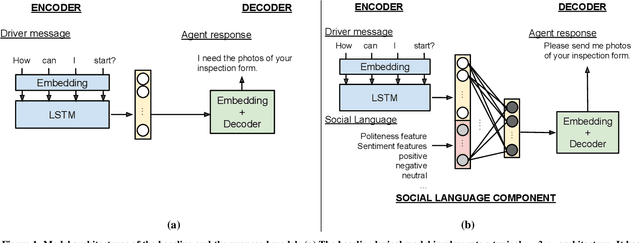Can You be More Social? Injecting Politeness and Positivity into Task-Oriented Conversational Agents
Paper and Code
Dec 29, 2020



Goal-oriented conversational agents are becoming prevalent in our daily lives. For these systems to engage users and achieve their goals, they need to exhibit appropriate social behavior as well as provide informative replies that guide users through tasks. The first component of the research in this paper applies statistical modeling techniques to understand conversations between users and human agents for customer service. Analyses show that social language used by human agents is associated with greater users' responsiveness and task completion. The second component of the research is the construction of a conversational agent model capable of injecting social language into an agent's responses while still preserving content. The model uses a sequence-to-sequence deep learning architecture, extended with a social language understanding element. Evaluation in terms of content preservation and social language level using both human judgment and automatic linguistic measures shows that the model can generate responses that enable agents to address users' issues in a more socially appropriate way.
 Add to Chrome
Add to Chrome Add to Firefox
Add to Firefox Add to Edge
Add to Edge